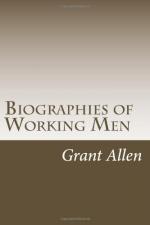Only one higher honour could now fall to the lot of a citizen of the United States. The presidency was the single post to which Garfield’s ambition could still aspire. That honour came upon him, like all the others, without his seeking; and it came, too, quite unexpectedly. Five months later, in the summer of 1880, the National Republican Convention met to select a candidate for their party at the forthcoming presidential election. Every four years, before the election, each party thus meets to decide upon the man to whom its votes will be given at the final choice. After one or two ineffectual attempts to secure unanimity in favour of other and more prominent politicians, the Convention with one accord chose James Garfield for its candidate—a nomination which was quite as great a surprise to Garfield himself as to all the rest of the world. He was elected President of the United States in November, 1880.
It was a marvellous rise for the poor canal boy, the struggling student, the obscure schoolmaster, thus to find himself placed at the head of one among the greatest nations of the earth. He was still less than fifty, and he might reasonably have looked forward to many years of a happy, useful, and honourable life. Nevertheless, it is impossible to feel that Garfield’s death was other than a noble and enviable one. He was cut off suddenly in the very moment of his brightest success, before the cares and disappointments of office had begun to dim the pleasure of his first unexpected triumph. He died a martyr to a good and honest cause, and his death-bed was cheered and alleviated by the hushed sorrow and sympathy of an entire nation—one might almost truthfully add, of the whole civilized world.
From the first, President Garfield set his face sternly against the bad practice of rewarding political adherents by allowing them to nominate officials in the public service—a species of covert corruption sanctioned by long usage in the United States. This honest and independent conduct raised up for him at once a host of enemies among his own party. The talk which they indulged in against the President produced a deep effect upon a half-crazy and wildly egotistic French-Canadian of the name of Guiteau, who had emigrated to the States and become an American citizen. General Garfield had arranged a trip to New England in the summer of 1881, to attend the annual festival at his old school, the Williams College, Massachusetts; and for that purpose he left the White House (the President’s official residence at Washington) on July 2. As he stood in the station of the Baltimore and Potomac Railway, arm in arm with Mr. Blaine, the Secretary of State, Guiteau approached him casually, and, drawing out a pistol, fired two shots in rapid succession, one of which took effect on the President above the third rib. The assassin was at once secured, and the wounded President was carried back carefully to the White House.




